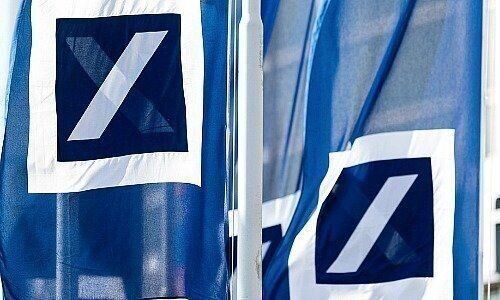Deutsche Bank on China: «We Come With the Right Zip Code»
Deutsche Bank is bullish on China’s market opening and is betting on increased activity and «two-way traffic of capital».
«We’re seeing a lot of private equity and hedge funds looking for investments going into China, institutional investors generally making more use of the Bond Connect schemes and the like,» said Deutsche Bank’s recently appointed APAC CEO Alexander von zur Muehlen in an «SCMP» report. «More will come.»
Deutsche Bank is amongst the global banks seeking to take advantage of China’s market opening and it acquired a domestic fund custody license this month which will help drive its asset management goals onshore.
«People will go into '21 and will place their capital market bets because of this relative growth vacuum that we’re going to see between China and the rest of the world,» he explained. «Now that more capital is allowed to go into the country, more capital will make its way into the country.»
«Right Zip Code»
Muehlen believes that investments will flow both in and out of the mainland, noting that Europe remains a «very attractive destination» for the «increasing quantum of capital» in China.
«This two-way traffic of capital is something we want to position ourselves for. The direction of travel is very clear,» he said. «We feel as a European based organization, we come with the right zip code and global network and capability set to really service those cross-border activities.»
Investment Banking Rebound
Outside of onshore China, Muehlen is also optimistic about an investment banking rebound with expectations for an increase in cross-border transactions and fixed income activities driven by a recovery in China, India and other parts of Asia.
«On the institutional side and the capital markets side, activity will pick up following the pandemic,» Muehlen said.
«Debt financing requirements in both the private and the public sector are going to increase. We’re seeing an increasing quantum of sovereign debt issuance coming to market now, which is something we seek to obviously participate in to support economic revival across the region [and] which also results in fee generation.»
Return to Profit
In the third quarter, the bank posted a profit of 309 million euros ($377 million) compared to a $1 billion loss a year earlier, marking the third consecutive quarter of net gains in its bottom line.
The bank has in fact upgraded its target in the region and is now seeking a return on tangible equity of 15 percent for its APAC business by 2022, up from 10 percent.
«We do expect fee pools to develop positively, barring any Covid-19 induced explosions or implosions in the real economy,» Von zur Muehlen added.






















